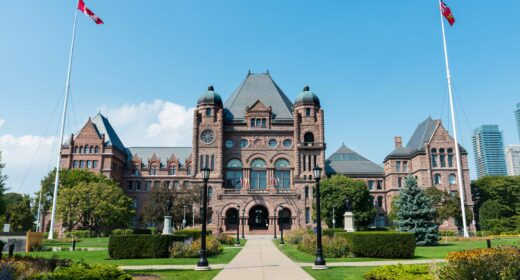In an unfortunate, but predictable, decision for employees, the Ontario Labour Relations Board (the “OLRB”) has recently ruled in United Food and Commercial Workers Canada v MedReleaf Corp. that employees working in the production of medical marijuana are excluded from Ontario’s Labour Relations Act (“OLRA”), and instead fall under the jurisdiction of the Agricultural Employees Protection Act, 2002 (the “AEPA”).
The facts
MedReleaf grows, cultivates, harvests, and distributes medical marijuana under a license from Health Canada. Its operations basically resemble a factory: employees work indoors in climate-controlled rooms, and a large portion of its employees are administrative and shipping and receiving staff.
The United Food and Commercial Workers Canada (“UFCW”) brought an application for certification under the OLRA seeking to represent MedReleaf’s employees.
The issue
Section 3(b.1) of the OLRA states that it does not apply to an employee “within the meaning of the Agricultural Employees Protection Act, 2002”. Therefore, if MedReleaf employees fall within the definition of the AEPA, they cannot unionize under the OLRA.
Are MedReleaf’s workers “agricultural employees”?
The OLRB concluded that MedReleaf’s employees were not entitled to organize under the ORLA after looking at the purpose of the AEPA:
The purpose of this Act is to protect the rights of agricultural employees while having regard to the unique characteristics of agriculture, including, but not limited to, its seasonal nature, its sensitivity to time and climate, the perishability of agricultural products and the need to protect animal and plant life.
The OLRB also looked at the definition of “agriculture” under the ORLA:
“agriculture” includes farming in all its branches, including dairying, beekeeping, aquaculture, the raising of livestock including non-traditional livestock, furbearing animals and poultry, the production, cultivation, growing and harvesting of agricultural commodities, including eggs, maple products, mushrooms and tobacco, and any practices performed as an integral part of an agricultural operation [emphasis added].
MedReleaf argued that, while its production process resembled a factory, its employees were nonetheless engaged in agriculture and therefore subject to the AEPA.
UFCW argued that cannabis is not an “agricultural commodity”. Its production involves factory-like settings and cutting-edge technologies, which in no way look like the traditional “family farm” operation that the AEPA is meant to protect. The union also argued that the OLRA provides better protections for the employees’ right to free association under the Canadian Charter of Rights and Freedoms. Therefore, the OLRB should interpret any ambiguity in the legislation in a manner that ensures the OLRA applies.
The OLRB ultimately agreed with the employer that the AEPA applied to the workers. It noted that, while the OLRA does provide greater protections to employees and unions, the Supreme Court has already determined that the AEPA is Charter compliant. Therefore, the OLRB cannot rank legislation that it thinks is constitutionally better, once the Supreme Court has deemed that neither piece of legislation violate the Charter (although, the OLRB seemed to suggest that it would probably give the OLRA a grade of “Charter A+” and the AEPA a grade of “Charter C–”).
In regards to whether cannabis is an “agricultural commodity”, the OLRB noted that despite the fact that the production resembles a factory, this does not exclude the product from falling under the AEPA. The OLRB compared the production of cannabis to tobacco production, which it noted was also under the jurisdiction of the AEPA. At the end of the day, cannabis is a plant that is grown, harvested and sold, such that it falls within the AEPA.
The OLRB’s hands were tied
In its decision, the OLRB made what it called “one last observation” about the AEPA exclusion, noting how outdated and unnecessary it seemed, but the wording of the AEPA bound them. It noted that there is little industrial relations basis in not certifying MedReleaf’s employees under the OLRA.
It specifically noted that the historical purposes of treating agricultural workers differently did not exist in this case:
Many, if not all, of the “unique characteristics” of agriculture, its seasonal nature, its sensibility to climate, the need to protect animal and plant life, referred to among the purposes of the AEPA, do not appear to be present here. Certainly, MedReleaf is not a "family farm" that has been, inter alia, said to justify the agricultural exclusions to labour relations legislation.
Unions have been fighting to prevent the AEPA from applying to employees, because most modern farming is indistinguishable from any other form of manufacturing or production.
As Justice Abella pointed out in her dissent in Fraser v. Ontario (Attorney General), the 2011 Supreme Court decision that determined the AEPA was Charter compliant, the AEPA has almost no language to allow for collective bargaining. It only requires that an employer “listen” to employee representations and acknowledge that those representations were made. There is no enforcement mechanism to resolve bargaining disputes.
Also, the OLRB has the institutional knowledge and mechanisms to deal with industrial-relations issues, such that, on a practical level, it seems irresponsible to allow the Agriculture, Food and Rural Affairs Appeal Tribunal (“AFRAAT”), with no experience in these areas, to deal with industrial-relations issues. For fun, I searched for AFRAAT decisions dealing with labour issues. They appear to have never dealt with any labour issues…ever.
It is time for the Ontario government to acknowledge that the total exclusion of “agricultural employees” is not sensible or justifiable, and to grant those employees access to the ORLA.



